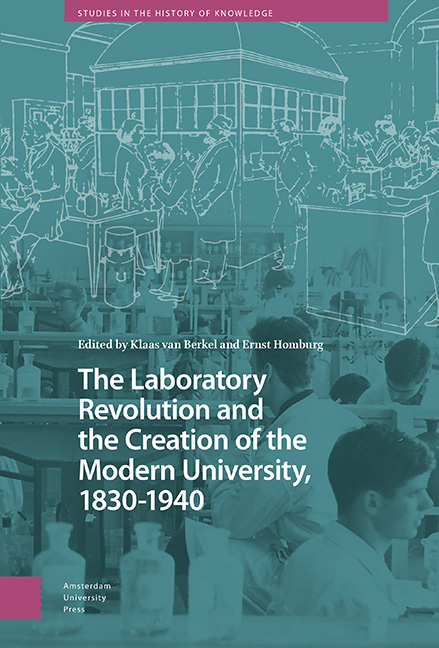10 - Of Growing Significance : The Support Staff in the Laboratories and Institutes of Utrecht University during the Interwar Period
Published online by Cambridge University Press: 29 November 2023
Summary
Abstract
This chapter focuses on the development of support staff at Utrecht University. It was a period of rapid growth for the university and profound modernization of scientific practice. This was also evident in the development of support activities and support staff. Their size grew in absolute numbers and in proportion to scientific personnel. New positions emerged, such as analyst or glassblower, and existing positions became more specialized, such as technician and laboratory clerk. This development also contributed to new forms of organization: the ‘family-like’ unit of the nineteenth century faded and was replaced by a business-like organization. Technicians, analysts, and clerks were not part of the civitas academica, but they became more recognized for their contributions to research and education.
Keywords: Utrecht University, support staff, specialization, analyst, technician, Interbellum
Introduction
In 1922 professor of botany and director of the Botanical Laboratory at Utrecht University Friedrich Went wrote a letter to the university’s Board of Trustees (College van Curatoren) saying:
Mr. De Bouter is a very capable craftsman and a first-rate instrument maker, for whom the Laboratory has much to be grateful for.… His work has contributed to giving the Botanical Laboratory in Utrecht an excellent reputation in scientific circles in the Netherlands and abroad.
He wrote these words of praise to justify his request to promote P.A. de Bouter, the laboratory amanuensis, to the post of chief instrument maker. Such a promotion would give him recognition for his work—and a higher salary. Went’s statement can be seen as a small sign of the changes taking place among the support staff, especially among the technical personnel, and of the increased appreciation for their work.
The interwar period was a time of significant change in the scientific practice as well as in the development of the university. The focus of this chapter will be the effects of these processes of modernization on the support staff, including the social effects. This chapter will deal with the university support staff, specifically that of Utrecht University, during that period. It aims to determine which changes the support staff experienced during the interwar period, especially regarding their numbers, job descriptions, positions, qualifications, and organization.
- Type
- Chapter
- Information
- Publisher: Amsterdam University PressPrint publication year: 2023



